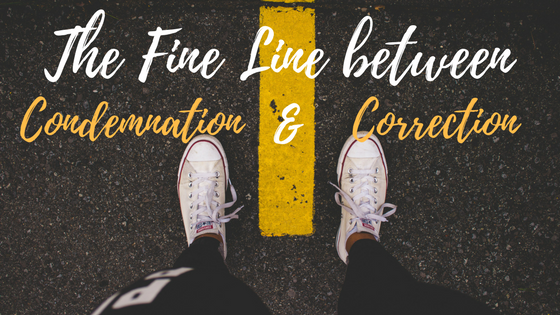
Division is everywhere right now. I don’t have to scroll too far in my Twitter feed to find two opposing views. These opposing views often have solid evidence to support their arguments.
But this is a unique and divisive moment in history for the American church, too. Both leaders and laymen have opinions on the proper diagnoses and cures for present divisions within the church.
Some leaders are questioning the American church’s authenticity when compared to the first century church as described in the New Testament. Others are calling on the church to repent of its sins of comfortable, complacent, and apathetic religiosity. Laymen are reexamining their spiritual formation, sorting through what’s been infused with Scripture versus what’s been informed by culture.
It seems every Christian has something to say. When scrolling through my social media feeds, it’s hard not to be overcome by downright cynicism.
I love the church as it is described in Scripture. Although I lament the visible cracks and fractures of the church (and they are visible to both believers and nonbelievers of Jesus), I am thankful for local and national leaders who are willing to challenge the status quo of cultural Christianity, even when it steps on my toes.
Many Christians accuse such leaders who “rock the boat” as divisive at best and judgmental at worst. It’s made me question the difference between condemnation and correction, not only when listening to other Christians’ words but also when sharing my own.
There is a fine line between correction and condemnation, and its this line that I’ve been praying and thinking about for weeks. How do we—people of the church—correct one another without condemning one another?
Correction is biblical for the Christian. In fact, many New Testament letters included correction for churches that had wandered in some ways from the gospel.
But condemnation is not biblical for the Christian. Judgment is reserved for God alone, who will righteously and rightly judge humanity, and the evidence on which the verdict hinges is faith in Jesus Christ.
Paul even wrote in 1 Corinthians 4:3-4, “But with me it is a very small thing that I should be judged by you or by any human court. In fact, I do not even judge myself… It is the Lord who judges me.”
However, Paul seems to be condemning and judging in some of his letters… or is he disciplining and correcting? I think the answer is the latter.
Jesus had a lot to say about both.
In Jesus’ famous Sermon on the Mount, he commanded, “Judge not, that you be not judged… Why do you see the speck that is in your brother’s eye, but do not notice the log that is in your own eye? …You hypocrite, first take the log out of your own eye, and then you will see clearly to take the speck out of your brother’s eye” (Matthew 7:1-5).
Sometimes, believers are tempted to use this passage to silence another’s discipline and accountability.
We respond to correction with, “Jesus said, ‘Judge not! Take the log out of your own eye!”
However, Jesus did not stop at this mandate; the latter half says to remove the log from our own eye so that we can then remove the speck from our brothers and sisters’ eyes.
This is one difference between condemnation and correction.
People who seek to condemn will magnify the sins of others without first identifying and repenting of their own sins.
People who seek to correct will first take an honest look in the mirror. They will address their brother or sister’s sins as they admit with transparency and humility that they are far from perfect, too.
Another mark of condemnation is that it offers no solutions.
Someone likely comes to your mind who always has a diagnosis but no cure for any given problem, particularly within the church. But a critique without correction is only that: a critique.
I have been guilty of this. Can we admit together that it’s much easier to be the cynic on the sidelines rather than the playmaker in the game?
Those within the Body of Christ who are passionate about its witness to Christ will not merely sit on the sidelines and point out the most recent failing of the church. They will seek out solutions to problems through prayer, God’s Word, and other believers, and then they will move forward with correction.
This is because they long to see believers mature so that the entire body of Christ “builds itself up in love,” according to Ephesians 4. Believers cannot mature without practical steps toward maturity, and offering critiques without solutions shows no evidence of love.
Ephesians 4 highlights further evidence of correction within the church: correction results in greater unity rather than greater division.
This is tricky because correction sometimes causes seasons of division. However, those who offer biblical correction are willing to endure temporary seasons of division for the sake of greater unity.
Paul often used corrective language that Christians received as divisive. In fact, there is a lost letter between 1 Corinthians and 2 Corinthians in which Paul seemingly offered intense correction.
But Paul was one of the most passionate apostles when it came to unity. That’s why he wrote, “[S]peaking the truth in love, we are to grow up in every way into him who is the head, into Christ” (1 Corinthians 4:15).
Correction does not silence truth, but correction gives truth a soft place to land because its motivation is love.
Jesus said in Matthew 12:25, “Every kingdom divided against itself is laid waste, and no city divided against itself will stand.”
Condemnation only divides and leaves the church in shambles, but correction has, as its aim, greater unity and love in the church, even amidst seasons of disunity.
Condemnation only burns bridges; correction builds them.
Finally, I think condemnation attacks the superficial problem while correction examines the root cause.
Ephesians 6:12 says, “For our struggle is not against flesh and blood, but against the rulers, against the powers, against the world forces of this darkness, against the spiritual forces of wickedness in the heavenly places.”
A person who condemns only throws ad hominem attacks at every person and institution.
A person who corrects examines the deeper roots of the problem, calling sin and its propagator, Satan, by their names.
The person who corrects knows that the kingdom of God will never fully manifest itself here on earth but bravely abides in the tension of “now” and “not yet,” excavating and examining the deeper roots of unruly weeds.
In this unique moment for the church, I long to be a corrector. I’ve certainly been the condemner overcome with cynicism, but my prayer is to become the corrector overcome with hope.
The world has enough condemners, and the church is called to a higher standard.
Let’s be a people that seeks the way of Christ in our correction.

 Welcome to my blog! In a nutshell, I want you to know that I am passionate about building bridges between people both inside and outside of the Church. I live in New Orleans, LA, with my husband where I am a seminary student. Learn more
Welcome to my blog! In a nutshell, I want you to know that I am passionate about building bridges between people both inside and outside of the Church. I live in New Orleans, LA, with my husband where I am a seminary student. Learn more 
Thank you nd Gbls Sis in Christ. Sometimes our passion n Zeal to do the of God To Obey his word can often times blind sight us in to condemning when in fact we may feel or think that we are merely correcting. May God forgive our condemong others even when we have done so ignorance. Again thanks for the clarity nd mail also Correct with Gods wisdom nd his love The Love of our Lord Christ Jesus!
Now 9/2/2020
I rabbit trail alot in my Christian net-roaming…. and found this message today. Thank you! I will print it out and let the message/word of God change me in this topic. Ann, 74 and still growing up. 🙂 in the Lord.